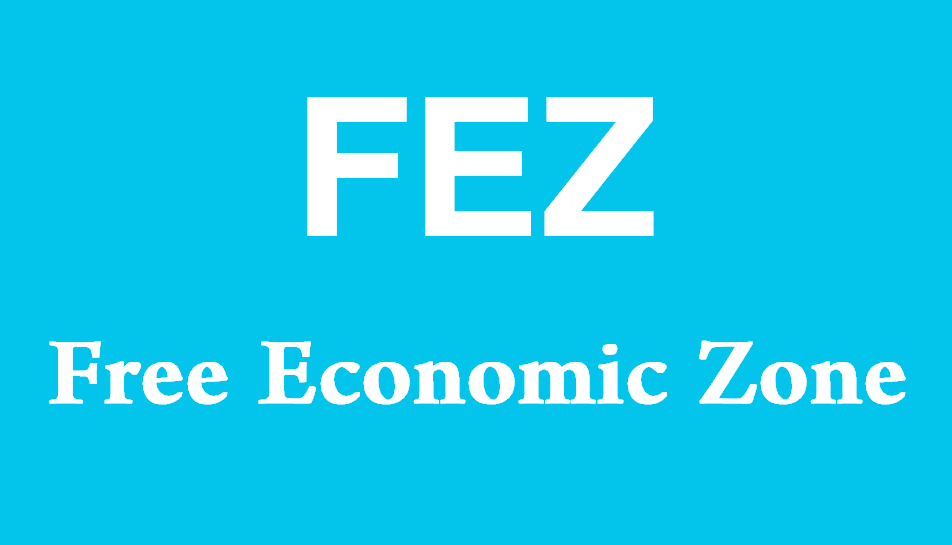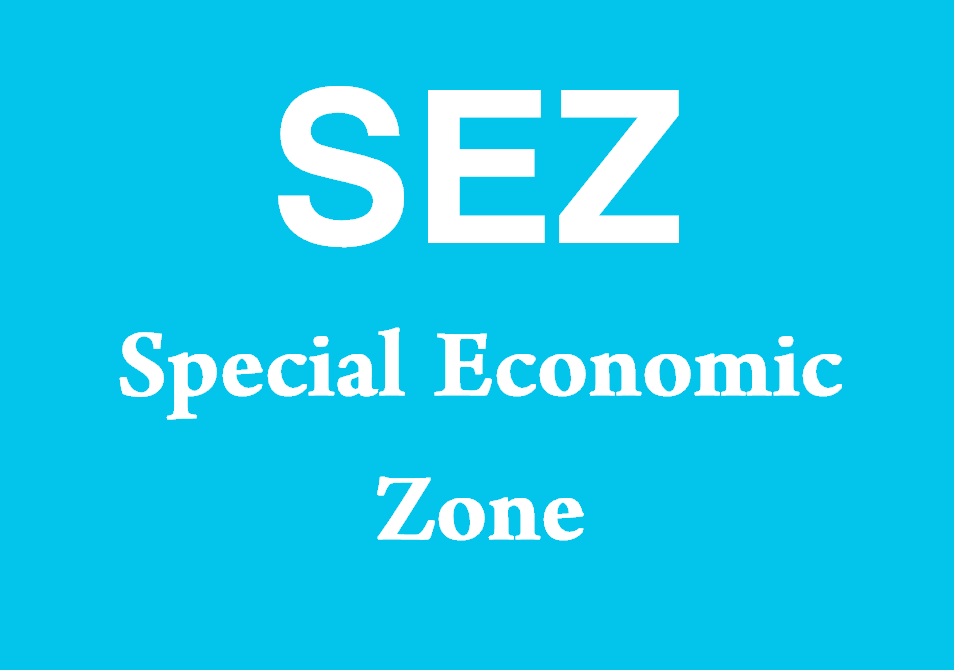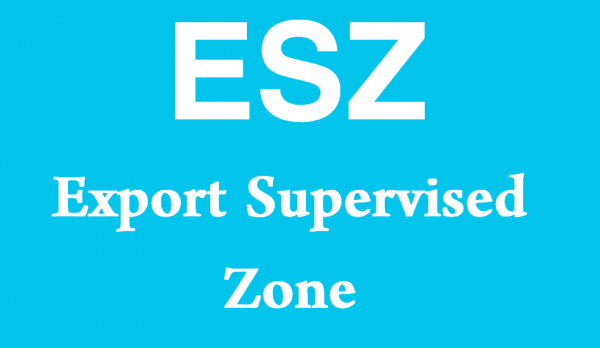What does FZ stand for?
FZ stands for Free Zone. A Free Zone, also known as a Free Trade Zone or Special Economic Zone, is a designated area within a country where businesses can operate with reduced regulatory and tax constraints compared to the rest of the country. Free Zones are established to attract foreign investment, boost economic activity, and promote exports by offering incentives such as tax exemptions, simplified customs procedures, and regulatory flexibility. Understanding the concept and benefits of Free Zones is crucial for businesses and importers looking to optimize their operations and expand their global footprint.

Comprehensive Explanation of Free Zone
Definition and Characteristics
What is a Free Zone?
A Free Zone (FZ) is a specific geographic area within a country where normal trade barriers such as tariffs and quotas are eliminated, and bureaucratic requirements are reduced, typically with the aim of enhancing the ease of doing business. These zones are designed to encourage foreign direct investment (FDI), boost exports, and create employment opportunities by offering attractive incentives and benefits to businesses.
Key Features
- Tax Incentives: Businesses operating in Free Zones often benefit from tax exemptions or reductions on corporate income, import/export duties, and value-added tax (VAT).
- Simplified Customs Procedures: Streamlined customs processes, including expedited import/export procedures and reduced documentation requirements.
- Regulatory Flexibility: Relaxed labor laws, ease of setting up businesses, and less stringent regulations compared to the rest of the country.
- Infrastructure and Facilities: High-quality infrastructure, including logistics hubs, warehouses, and office spaces, tailored to support business operations.
- Access to International Markets: Proximity to ports, airports, and major transportation routes facilitates global trade and distribution.
Types of Free Zones
Export Processing Zones (EPZs)
EPZs are specialized areas designed primarily for the manufacturing and export of goods. Businesses in EPZs benefit from duty-free import of raw materials and components, provided that the finished products are exported out of the country.
Free Trade Zones (FTZs)
FTZs focus on trade and logistics, allowing for the import, storage, and re-export of goods without customs intervention. These zones often host activities such as warehousing, packaging, and labeling.
Special Economic Zones (SEZs)
SEZs are broader in scope and may include manufacturing, services, and trade activities. They offer comprehensive incentives to attract diverse industries and foster economic development.
Bonded Warehouses
Bonded warehouses are secure areas where goods can be stored without payment of duties and taxes until they are ready to be released for domestic consumption or re-exported.
Benefits of Free Zones
Attracting Foreign Investment
Free Zones attract foreign investors by offering favorable conditions such as tax holidays, repatriation of profits, and protection of intellectual property. These incentives reduce the cost of doing business and increase the potential for profitability.
Promoting Exports
By providing duty-free access to raw materials and facilitating export-oriented manufacturing, Free Zones help boost a country’s export capabilities. This leads to increased foreign exchange earnings and a positive trade balance.
Economic Development
Free Zones contribute to economic development by creating jobs, stimulating local economies, and fostering the growth of ancillary industries. They also help transfer technology and skills to the host country.
Enhancing Competitiveness
Businesses in Free Zones benefit from cost savings, efficient logistics, and proximity to international markets. This enhances their competitiveness and ability to respond quickly to global market demands.
Global Examples of Free Zones
Jebel Ali Free Zone (JAFZA), UAE
One of the largest and most successful Free Zones in the world, JAFZA hosts thousands of companies from various industries. It offers state-of-the-art infrastructure, strategic location near Jebel Ali Port, and extensive business incentives.
Shenzhen Special Economic Zone, China
Established in 1980, Shenzhen SEZ transformed a small fishing village into a bustling metropolis and a global manufacturing hub. The zone attracted massive foreign investment and became a model for other SEZs in China.
Colón Free Zone, Panama
The Colón Free Zone is one of the largest free trade zones in the Americas. It serves as a major distribution center for goods entering and leaving Latin America, benefiting from its strategic location near the Panama Canal.
Challenges and Criticisms
Regulatory and Legal Issues
While Free Zones offer regulatory flexibility, they may also face challenges related to governance, legal disputes, and enforcement of contracts. Clear legal frameworks and effective governance are essential to address these issues.
Economic Disparities
The benefits of Free Zones may not always be evenly distributed, leading to economic disparities between the zones and the rest of the country. Policymakers must ensure that the benefits of Free Zones contribute to broader economic development.
Environmental Concerns
Industrial activities in Free Zones can lead to environmental degradation if not properly managed. Sustainable practices and environmental regulations are necessary to mitigate negative impacts.
Future Trends and Innovations
Digital Free Zones
The rise of digital economies has led to the development of Digital Free Zones, which cater to technology and e-commerce businesses. These zones offer incentives for data centers, software development, and online trading platforms.
Green Free Zones
Sustainability is becoming a priority, and Green Free Zones are emerging to promote environmentally friendly business practices. These zones focus on renewable energy, waste management, and green manufacturing processes.
Integration with Global Value Chains
Free Zones are increasingly integrating with global value chains, providing end-to-end solutions for manufacturing, logistics, and distribution. This enhances their role in global trade and supply chain networks.
Notes to Importers
Understanding Free Zones
Importers must understand the advantages and operational dynamics of Free Zones to optimize their supply chains and reduce costs. Knowledge of Free Zones can help importers leverage benefits such as tax incentives, streamlined customs procedures, and efficient logistics.
Key Considerations for Importers
Selecting the Right Free Zone
Importers should carefully select Free Zones based on factors such as location, infrastructure, industry focus, and available incentives. Conducting due diligence and evaluating the suitability of a Free Zone for their specific business needs is crucial.
Compliance and Regulations
Understanding and complying with the regulatory requirements of Free Zones is essential for smooth operations. Importers must stay informed about customs procedures, tax policies, and legal obligations to avoid potential issues.
Strategic Planning
Strategic planning is vital for maximizing the benefits of Free Zones. Importers should develop strategies for inventory management, logistics, and distribution to take full advantage of the efficiencies offered by Free Zones.
Sample Sentences Using FZ
- “The company established a manufacturing plant in the FZ to benefit from tax exemptions and streamlined customs procedures.”
- Meaning: The company set up a factory in the Free Zone to take advantage of tax benefits and easier customs processes.
- “Importers can significantly reduce costs by utilizing bonded warehouses within an FZ.”
- Meaning: Businesses can save money by using storage facilities in a Free Zone where goods are exempt from duties until released.
- “The FZ offers state-of-the-art logistics infrastructure, making it an ideal location for international trade operations.”
- Meaning: The Free Zone provides advanced logistics facilities, making it suitable for global trading activities.
- “Companies in the FZ benefit from regulatory flexibility and support services that enhance business efficiency.”
- Meaning: Businesses operating in the Free Zone enjoy less stringent regulations and additional services that improve operational efficiency.
- “Expanding into an FZ allows importers to access new markets and improve their global supply chain.”
- Meaning: Moving into a Free Zone helps businesses reach new markets and enhance their international supply chain management.
Other Meanings of FZ
| Acronym | Full Form | Description |
|---|---|---|
| FZ | Franz Zappa | Refers to the influential American musician Frank Zappa. |
| FZ | Frozen Zone | An area with extremely cold temperatures, often used in scientific contexts. |
| FZ | Functional Zone | A designated area within a facility for specific functions or activities. |
| FZ | Flash Zone | A region in a chemical reactor where a rapid phase change occurs. |
| FZ | Freezing Zone | The section of a freezer where temperatures are kept low enough to freeze items. |
| FZ | Flight Zone | The area surrounding an animal in which it feels safe; beyond this zone, the animal may flee. |
| FZ | Fuel Zone | An area designated for the storage or distribution of fuel. |
| FZ | Fault Zone | A region characterized by geological faults. |
| FZ | Focus Zone | An area where concentration and focus are required, often in work or study environments. |
| FZ | Flood Zone | A geographical area that is prone to flooding. |
| FZ | Fracture Zone | A region of the Earth’s crust where significant fracturing has occurred. |
| FZ | Fun Zone | An entertainment area designed for recreational activities. |
| FZ | Fruit Zone | An area in agriculture dedicated to growing fruit crops. |
| FZ | Frequency Zone | A specific range of frequencies used in telecommunications or radio broadcasting. |
| FZ | Fire Zone | An area with a high risk of wildfires or controlled burns. |
| FZ | Fresh Zone | A section in a refrigerator designed to keep food fresh. |
| FZ | Fishing Zone | A designated area where fishing activities are allowed. |
| FZ | Friend Zone | A social concept where one person wishes to remain friends while the other seeks a romantic relationship. |
| FZ | Fiber Zone | An area dedicated to the production or use of fiber materials. |
| FZ | Field Zone | A specific area within a field where certain activities or experiments take place. |






